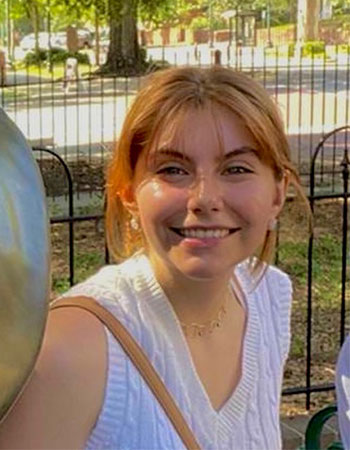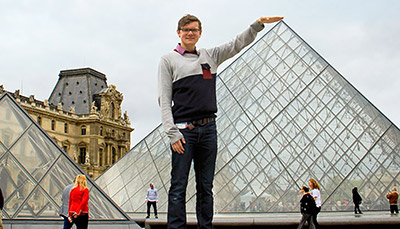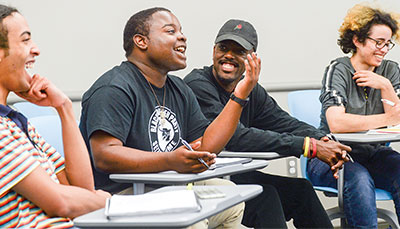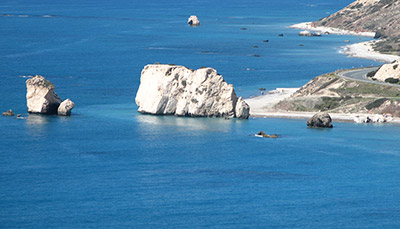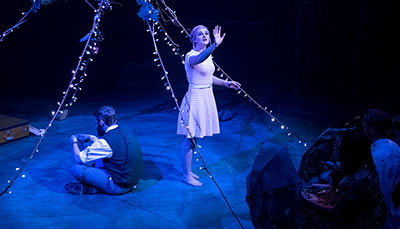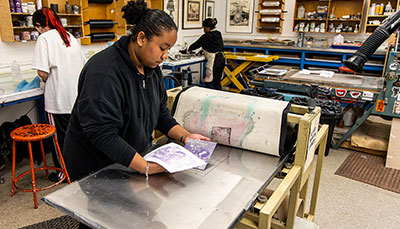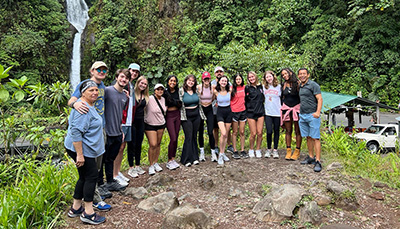Art History, B.A.
McCausland College of Arts and Sciences
Enlighten yourself about the history of art across different cultures around the world and through different movements.
In art history, you will develop skills such as close looking, contextual knowledge, research and writing. These skills will help enrich your general knowledge of history and culture, along with specialized abilities in visual studies and research that are applicable to many professions and experiences.
Program Highlights
-
Small Student Cohort
Immerse yourself in a positive atmosphere and network of support and connections through your peers and our faculty.
-
Experiential Learning
Enhance your education through internships and other hands-on opportunities.
-
Dedicated Faculty
Be mentored by a faculty that places the field in larger humanistic, cultural, historical and political contexts.
-
Flexible Curriculum
Supplement your education with a curriculum that works well with a second major and helps you meet your goals.
Building Skills
Gain the professional and personal intelligence it takes to have a successful career.
-
Cultural Awareness
Learning about and respecting diverse cultures and beliefs
Visual Literacy
Analyzing and understanding images, graphics and visual representations to extract meaning and communicate effectively
Critical Thinking
Analyzing and evaluating information to make informed decisions or judgments
-
Understand Complexity
Analyzing and synthesizing information to identify patterns and connections
Research
Gathering and analyzing information to increase knowledge or solve problems
Writing
Creating professional written content for inclusion in scholarly journal articles, books and reports
Using your degree
Make your college experience the foundation for a successful future.
Learn how alumni use degrees with outcome data from Gamecock GradStats, a service of the University of South Carolina Career Center.
Potential Careers
- Museum or Gallery Assistant
- Curator
- Grants Writer / Manager
- Cultural Heritage Manager
- Historic Preservationist
- Editor / Publisher
Job Titles of Alumni
- Collections Manager
- Project Manager
- Art Director
- Community Manager
- Foundation Director
Average Alumni Salary
Five to 10 years after graduation without additional education $61,962
Workplace Settings
- Museums
- Galleries
- Nonprofits
- Higher Education
Employers of Alumni
- Historic Columbia
- EdVenture Children's Museum
- South Carolina State Museum
- Virginia Museum of Fine Arts
- Art Institute of Chicago
